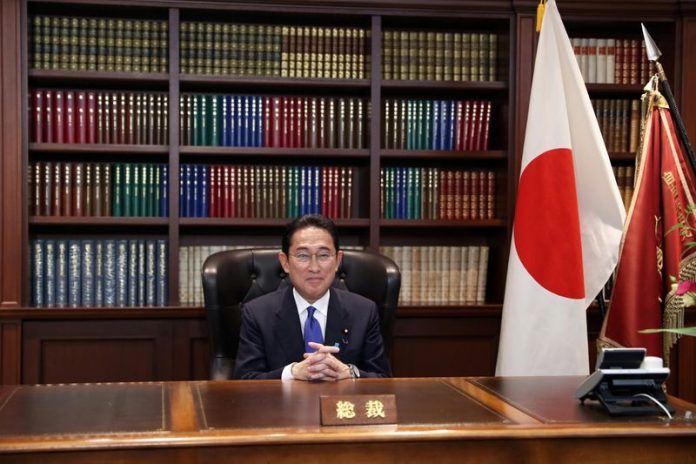Japan’s new Prime minister, Fumio Kishida, on Monday called a parliamentary election for 31 October and vowed to bolster the country’s response to the coronavirus pandemic, shortly after being formally confirmed by lawmakers in the top job.
Kishida, a 64-year-old former foreign minister with an image as a consensus builder, earlier unveiled a cabinet line-up dominated by allies of former prime minister Shinzo Abe and ex-finance minister Taro Aso.
“I want to ensure we implement large-scale, bold coronavirus countermeasures and economic policies. To do that, we must ask the people whether they trust me, Kishida, to carry out these policies,” he said at his inaugural news conference.
“I would like to pursue a politics of trust and compassion with the people’s mandate,” he said, drawing on the main theme in his campaign to become leader of the Liberal Democratic Party (LDP), making politics more accessible to the public.
While Kishida may enjoy a honeymoon period usually afforded new governments, analysts said he probably didn’t want to lose time, given risks posed by the pandemic.
His decision to call an election came as a surprise to most analysts who had expected the election to be held in November. Parliament will now be dissolved on 14 October.
Kishida said he would consider COVID-19 relief payouts, adding he had also instructed ministers overseeing the pandemic response to come up with policies on vaccinations, to strengthen the medical system and to expand testing to help reopen the economy.
New coronavirus cases in Tokyo on Monday totalled 87, the lowest since 02 November last year.
Kishida’s predecessor Yoshihide Suga enjoyed support ratings of about 70 percent soon after taking office a year ago, but came under heavy fire over his handling of the pandemic. Following Suga’s decision to make way for a new face, Kishida beat three contenders for the LDP leadership last week, paving the way for parliament to formally elect him premier on Monday.
Kishida’s cabinet features allies of Abe, Japan’s longest-serving premier, who quit last year citing ill health as his dream of another term faded.
Of the 20 posts, 13 were filled by people with no prior cabinet experience, in line with Kishida’s pledge to promote fresh faces, but many heavyweight jobs went to allies of Abe or of outgoing finance minister Aso.
“He won the election with the support of Abe and Aso, so now it’s time for him to return the favour, it’s not the time for him to cut them off,” said political analyst Atsuo Ito.
Aso’s replacement at the finance ministry is his low-profile brother-in-law, Shunichi Suzuki, who is viewed as likely to continue the government’s policy of tempering growth spending with fiscal reform. read more
Kishida said he wanted to pursue policies that achieve “a new type of capitalism” that distributes more wealth to households and tackles Japan’s widening income gap, adding that tweaking the financial income tax rate – which is levied on investment income – was among options he would consider.
One of those closest to Abe, former economy minister Akira Amari, became the ruling party’s powerful secretary-general.
Amari, who has promised a big extra budget after the election, told reporters on Monday it would need to include steps to ameliorate social divisions and COVID-19.
Defence Minister Nobuo Kishi, who is Abe’s brother, retained his position, as did Foreign Minister Toshimitsu Motegi, reflecting Kishida’s intention to continue Abe and Suga’s push to boost the nation’s security ties with the United States while preserving trade ties with China.
President Joe Biden congratulated Kishida, describing the U.S.-Japan alliance as a “cornerstone” of peace and stability in the region. Chinese President Xi Jinping said he hoped for “friendly and cooperative” ties with Japan, China’s state broadcaster CCTV reported.
Kishida said Japan should continue discussions with China, but expressed concerns over Beijing’s moves to change the status quo in the East and South China Seas.
Kishida also created a new post of economy security minister and filled it with a close ally of Amari, the architect of policies aimed at protecting sensitive technology from China in areas such as supply chains and cyber security.
There are three women in the line-up, one more than Suga had, but none of them hold a heavyweight portfolio.
SOURCE: REUTERS/PACNEWS














